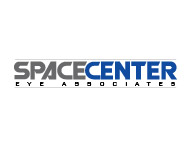
As a parent, your child's health and well-being are always top priorities. But while you may regularly monitor their growth and general health, it’s easy to overlook one critical area: their vision. Vision problems in children are more common than many parents realize, and early detection is key to preventing long-term issues.
Children may not always recognize or communicate vision difficulties, so it’s aware of the signs. Here's what you need to know about spotting vision problems in your child and what steps to take if you suspect something is wrong.
Why Early Detection is Crucial
Vision plays a significant role in a child's development. From learning to read to playing sports, much of what they do relies on their ability to see clearly. Poor vision can hinder their progress academically, socially, and even physically.
Detecting vision problems early allows for effective treatment, helping your child reach their full potential without unnecessary obstacles.
Signs Your Child May Have a Vision Problem
Frequent Squinting
Squinting is one of the most common signs of a vision issue. If your child squints when looking at distant objects or even while reading, it could indicate nearsightedness or astigmatism.
Squinting helps them temporarily improve focus, but it's a clear signal that their vision needs professional evaluation.
Difficulty Reading or Avoiding Close Work
Children who struggle with reading, often lose their place, or hold books too close to their face might be dealing with farsightedness or other focusing problems.
If your child avoids activities that require near vision, like reading or drawing, it could be a sign that they’re experiencing visual discomfort.
Head Tilting or Covering One Eye
Tilting the head to one side or covering one eye while trying to see may indicate that your child is trying to compensate for a vision imbalance. This behavior is common in children with amblyopia (lazy eye) or strabismus (crossed eyes). These conditions require prompt attention to prevent long-term vision impairment.
Excessive Eye Rubbing
Eye rubbing isn’t just a sign of tiredness; it can also indicate that your child is experiencing eye strain or discomfort. If your child frequently rubs their eyes, especially during or after reading, playing video games, or using a tablet, it could be due to uncorrected vision problems or dry eye.
Frequent Headaches
If your child regularly complains of headaches, particularly after school or homework, it could be related to their vision.
Headaches can stem from the eyes working too hard to focus, which often happens with conditions like farsightedness or astigmatism.
Short Attention Span for Visual Tasks
Children with undiagnosed vision problems often struggle to maintain focus during visual activities. If your child frequently loses interest in puzzles, coloring, or reading, it could be because their eyes are working overtime to compensate for a vision issue, leading to fatigue and frustration.
What Should Parents Do?
If you notice any of these signs in your child, it’s important to schedule a comprehensive eye exam.
Unlike school vision screenings, which often focus only on distance vision, an eye exam at Space Center Eye Associates will evaluate your child’s overall eye health, including their ability to focus, track, and coordinate their eyes.
Here’s what you can expect during an eye exam for your child:
- Visual Acuity Test: Measures how clearly your child can see at different distances.
- Eye Alignment Check: Ensures both eyes are working together properly.
- Focus and Tracking Evaluation: Assesses how well your child can focus on and follow objects.
- Eye Health Assessment: Examines the health of the eyes, including checking for any diseases or conditions that could affect vision.
Early Intervention Can Make a Difference
The good news is that many childhood vision problems can be corrected if caught early. Conditions like amblyopia and strabismus can often be treated with corrective lenses, eye patches, or vision therapy. Other issues, like nearsightedness or farsightedness, can be managed with glasses or contact lenses.
At Space Center Eye Associates, we believe in the importance of proactive eye care for children. By identifying and addressing vision problems early, we can help your child thrive both inside and outside the classroom.

